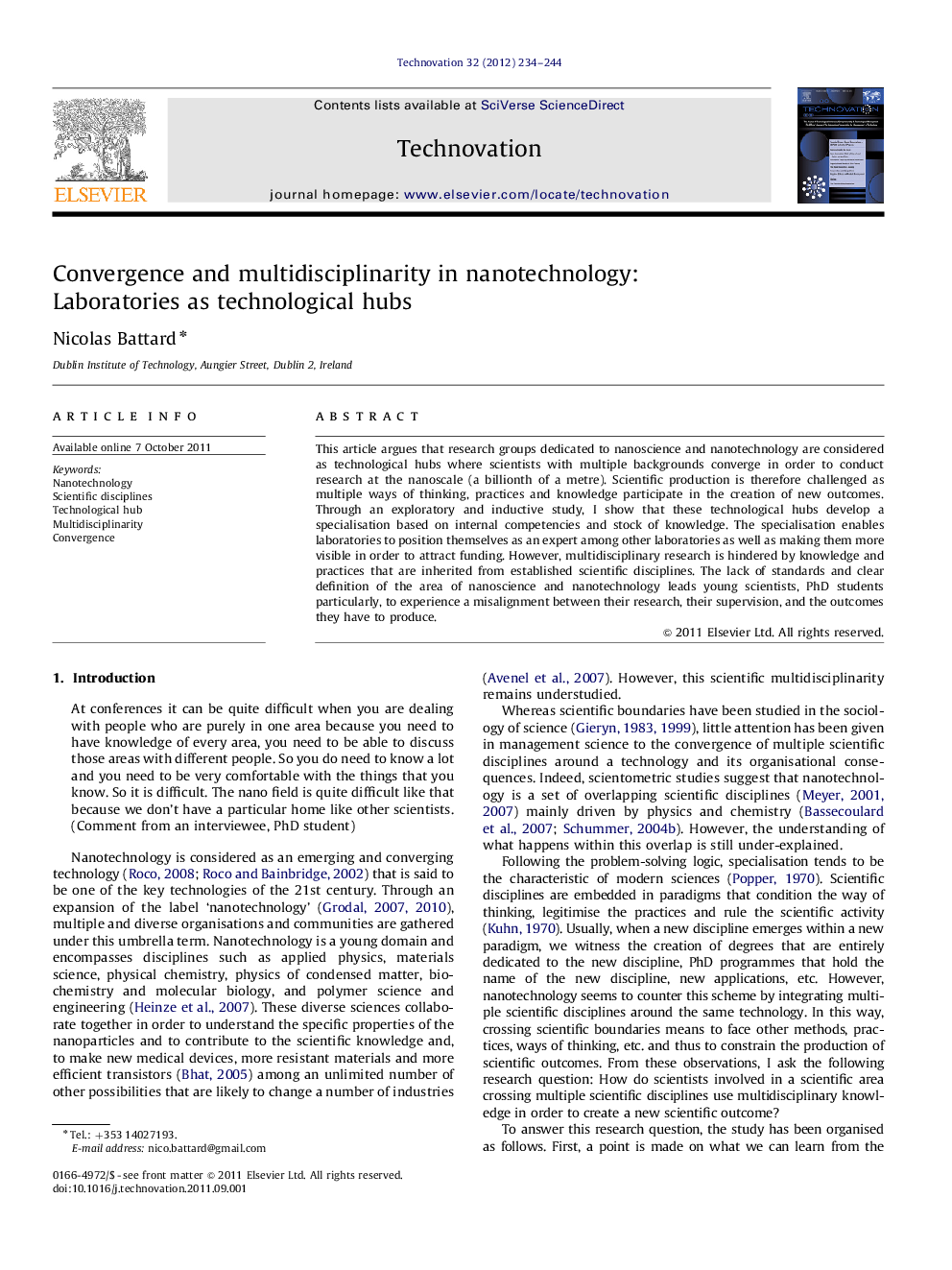| Article ID | Journal | Published Year | Pages | File Type |
|---|---|---|---|---|
| 1022043 | Technovation | 2012 | 11 Pages |
This article argues that research groups dedicated to nanoscience and nanotechnology are considered as technological hubs where scientists with multiple backgrounds converge in order to conduct research at the nanoscale (a billionth of a metre). Scientific production is therefore challenged as multiple ways of thinking, practices and knowledge participate in the creation of new outcomes. Through an exploratory and inductive study, I show that these technological hubs develop a specialisation based on internal competencies and stock of knowledge. The specialisation enables laboratories to position themselves as an expert among other laboratories as well as making them more visible in order to attract funding. However, multidisciplinary research is hindered by knowledge and practices that are inherited from established scientific disciplines. The lack of standards and clear definition of the area of nanoscience and nanotechnology leads young scientists, PhD students particularly, to experience a misalignment between their research, their supervision, and the outcomes they have to produce.
► I study a laboratory in the area of nanotoxicology. ► This laboratory presents a characteristic of multidisciplinarity. ► Laboratories make scientists converge around the same research agenda. ► Scientists are bounded by their scientific background.
